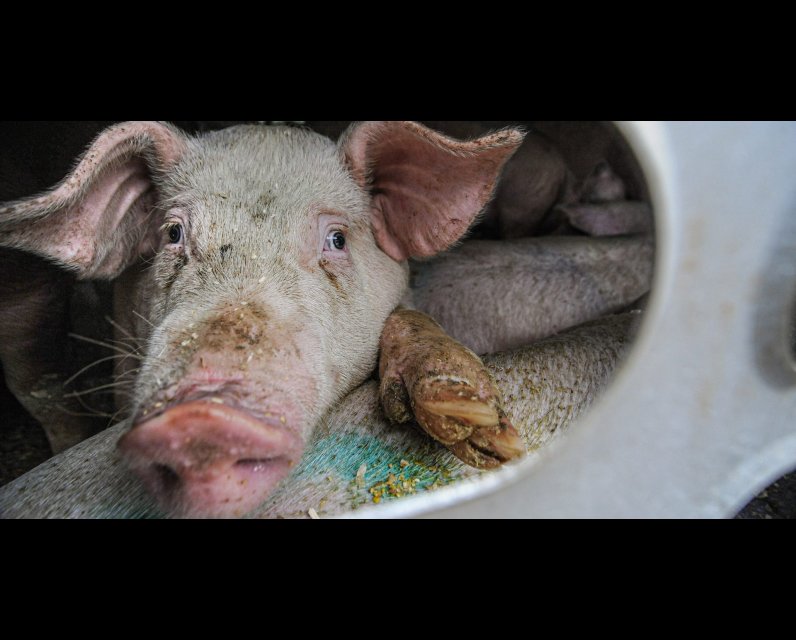Warning message
- Last import of users from Drupal Production environment ran more than 7 days ago. Import users by accessing /admin/config/live-importer/drupal-run
- Last import of nodes from Drupal Production environment ran more than 7 days ago. Import nodes by accessing /admin/config/live-importer/drupal-run
Unpublished Opinions
I am the founder of Unpublished Media Inc., a company I started in 2012. I am also a communications professional and community activist, living in Nepean, Ontario. And, I am a hockey goaltender, political hack and most importantly, an advocate for grassroots, participatory democracy at all levels of government.
Why the NDP voted against Bill C-275: An Act to amend the Health of Animals Act

This is the NDP's response to my letter inquiring about Bill C-275. Bill C-275 is a private member’s bill that was introduced in the Canadian Parliament on November 22, 2021, by John Barlow, a Conservative MP from Foothills, Alberta. The bill seeks to amend the Health of Animals Act to add a new offence to protect farmers and the biosecurity of animals on their farms from those who enter their property unlawfully.
The bill has been criticized by animal rights activists and organizations for being an ag-gag bill that would target whistleblowers and undercover investigators who expose animal cruelty and welfare issues on farms 345. If passed, the bill would impose fines in the hundreds of thousands of dollars and jail time for offences by individuals and organizations...
Thank you for your message regarding Bill C-275, An Act to amend the Health of Animals Act (biosecurity on farms), brought forward by the Conservative Critic for Agriculture and Agri-Food, John Barlow (MP for Foothills). At the Second Reading stage, when this bill was first debated in the House of Commons, I lent my support at that time to send it to the Agriculture Committee, but with a caveat: my support was conditional on seeing some important improvements made to the language in the bill, which I laid out in detail during my speech on May 1, 2023.
The rationale for this bill was purported to be about biosecurity risks posed to farm animals, including African Swine Fever, Bovine Spongiform Encephalopathy (BSE), Foot and Mouth Disease, and Avian Influenza (AI). These types of infectious outbreaks are serious threats that can necessitate the culling of entire livestock herds or flocks, and I was prepared to examine the bill, in good faith, with the understanding that seeking to improve biosecurity on farms was the objective of this Conservative bill.
However, as the study of the bill at committee stage unfolded, especially during clause-by-clause consideration of the bill, it became clear that committee members were uninterested in accepting reasonable amendments I proposed to improve the bill and clarify its federal scope. This was a departure from the committee’s more well-reasoned approach to examining Bill C-205 in the previous Parliament. A majority of committee members, including most of the Liberals, sided with the Conservatives to block my very reasonable amendments, including my proposed measure to ensure the provisions of the bill would apply equally to everyone – including farmers and their employees. If this bill was truthfully about enhancing biosecurity and preventing risk of infectious diseases being transferred to farm animals, it should have been a no-brainer that these responsibilities apply equally to everyone.
Unfortunately, I believe that this bill strays into provincial jurisdiction, making it primarily trespass legislation – not, fundamentally at its heart, about biosecurity, as was originally purported. It is for this reason that I arrived at the difficult conclusion that I could no longer offer my support to this bill. I’d like to offer more reasoning for my decision below:
Since Bill C-275 was first introduced as Bill C-205 in December 2019, during the 43rd Parliament, I have met several times with Humane Societies International-Canada, and Animal Justice, to hear about the concerns animal rights groups have about the legislation. HSI-Canada and Animal Justice identified the very real threat that the bill attempts to prevent whistleblowing in cases of animal abuse, by circumventing existing trespass laws in the Criminal Code of Canada.
When we discussed Bill C-205 in committee in June 2021, I pushed an important amendment to make sure its purpose was clear and conformed to the division of jurisdiction under the Constitution. Clause 1 of C-205, as originally submitted, would have amended the act by introducing subsection 9.1, which said: “No person shall, without lawful authority or excuse (my emphasis), enter a building or other enclosed place in which animals are kept knowing that or being reckless as to whether entering such a place could result in the exposure of the animals to a disease or toxic substance that is capable of affecting or contaminating them.” I moved to remove the emphasized words because animals and the land on which people keep them are legally designated as property, which section 92(13) of the Constitution prescribes as subject to provincial laws and regulations. Federal jurisdiction is limited to biosecurity concerns because of its jurisdiction in matters of criminal law.
During clause-by-clause consideration of the bill at Agriculture Committee, there was debate on a proposed amendment to include the term “applicable biosecurity measures” in the bill, to replace the words “without lawful authority or excuse.” I specifically asked Mr. Joseph Melaschenko, Senior Counsel at the CFIA’s Agriculture and Food Inspection Legal Services, how the difference would inform CFIA’s investigations on a farm. His response: “The presence of the words “without lawful authority or excuse” means that the provision would be limited to trespassers.” The CFIA confirmed it: this bill has become trespass legislation, which is the purview of the provinces and territories – not a biosecurity bill, which falls under federal jurisdiction.
It is difficult to find the correct balance between the very real and serious biosecurity threats that exist, the need of farmers to protect the animal populations whom they steward, and the transparency the public expects through the right to know and the right to protest. And I will never condone unauthorized trespass on private property that puts farmers and their families at risk. But the Conservatives have shown their true motivation with C-275: a trespass bill dressed-up as being about biosecurity.
I am disappointed in the Conservatives, the Bloc Québécois, and the majority of Liberal MPs on the committee who were unreceptive to making reasonable amendments in the interest of increased biosecurity that would have applied equally to all. I was optimistic that, by incorporating the varying viewpoints of farmers and animal rights activists, we could improve this proposed amendment to the Health of Animals Act to achieve the goal we all wish to see – the health and safety of animals. Unfortunately, what was allowed to pass at Committee Stage fails to meaningfully achieve that objective.



Comments
It's not about animals at all. It's about protecting farmers from animal activists and investigators. The fact that the Conservatives, Liberals and Bloc all agree makes it clear this is just about buying votes from the farming community. I hope the Senate will give it the attention it deserves and toss it in the garbage bin.